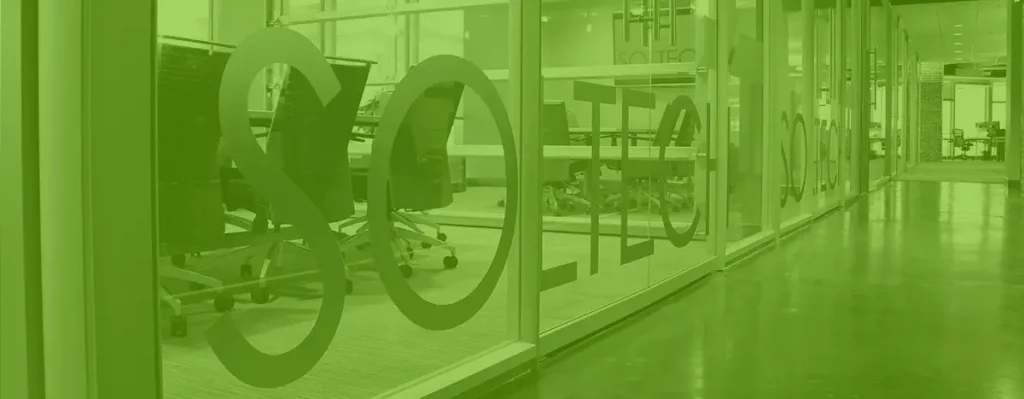
Tips for Writing the Best Resume for a Job in Tech
By SOLTECH
If you’re like most in the job market, you’ve likely spent a significant amount of time writing, re-writing, editing, and pouring over every detail of your resume. Did you know that recruiters don’t really spend much time analyzing your resume, though? A recruiter’s job is to hire the perfect candidate, not the perfect resume builder.
We’ve hired tech talent for our clients and our own office for years, so we’ve put together a list of attributes your resume should have, could have, and shouldn’t have. Hopefully, by the time you’re finished reading this article, you’ll feel more comfortable in assembling your tech resume in a way that tells a compelling story about yourself and why you are the perfect candidate for your dream job.
No, there isn’t a perfect resume template or buzz words that are guaranteed to get you in the door, but there are a few things that distinguish a great resume from an okay resume. For instance, you don’t need to list every job, accomplishment, and award you’ve ever received. Your resume, like mobile apps or any product, really, serves a purpose and should be designed with your end users in mind. What is this company wanting to see from a candidate? Sure, being an Eagle Scout is a wonderful achievement, but someone looking for a software developer likely won’t consider it as relevant to the job duties.
When downloading an app, there are some features you just expect to be available to you. These are features that, if you don’t see them, you’ll consider the app useless. A tech resume is the same way. Here are the do’s and don’ts of tech resume building:
Must-Have
Every resume should have these components:
- Name and contact information. Otherwise, how will we contact you?
- Recent work history including the company, your role, and tenure.
- Educational history. Education goes far beyond the classroom. You don’t necessarily have to hold a 4-year degree, but it’s important to acknowledge how you got into your field. Did you teach yourself or attend a coding boot camp?
- Include only major accomplishments under each job. Did you help build a product or work with a big client? Add that. Leave the smaller, day-to-day tasks for the interview.
- Demonstrate strong communication skills. Did you work on a team in the past or run daily stand ups? Software developers who can convey their ideas and problems to others are invaluable. Most companies keep a collaborative, communitive culture, and looking for someone who can fit right into that is extremely important for recruiters.
Would love to see
While this content is expected, it is delightful to see:
- An orderly, one-page resume
- Interesting and complex problems that you have solved
- Extracurricular activities that your reveal passion for the tech space
- Side projects and volunteer work (speaking engagements, panels, blog articles, etc.)
- Hackathon participation
- Taking on more complex challenges
- Mentoring others
- Spearheading internal initiatives like improved code reviews
- Being a part of the interview process for new team members
Things that are just okay
We can take them or leave them:
- Objectives – If you write a generic objective that looks anything like this,“I’m a hard-working individual with 6 years of experience seeking to use my skills at XYZ company,” please just save the space for something with more substance.
- Recommendations on the resume – Don’t get me wrong, these are excellent to have, but these are typically addressed later in the interview process. Having them on a resume carries no weight for me because they are typically all glowing – otherwise, why would you put them on your resume? Instead, include them on your LinkedIn profile. Remember, space is limited on a resume!
Leave these out
Here are the things you should avoid adding to your resume:
- Generic job descriptions. While some of your duties from company to company may be similar, not all of them should be. Get granular and specific about what you did at each company.
- A laundry list of every technology that you’ve ever heard of. If you list it on your resume, be prepared to talk about it in-depth during the interview. Never put anything in a resume you don’t feel comfortable talking about.
- Remove those old technologies. Tech moves fast, which means that older technologies become irrelevant quickly, so make sure to remove those before sending your resume to a possible employer. If you’re looking for a job that uses cutting-edge tech, list the cutting-edge tech you know how to use.
- This is great advice for any resume – explain your frequent job changes or employment gaps. When a recruiter sees that someone has left several jobs after a few weeks and went 6 months without a job, that can send up a red flag. Make mention of why these things occurred either in the resume or a cover letter.
- Typos and terrible formatting. Although your resume likely won’t be trashed just because of one typo, it does show a lack of attention to detail right from the start, which can put a bad taste in a recruiter’s mouth.
Tech Resume
First impressions are important, and your tech resume is the first impression you make on a potential employer. It’s the tool to get your foot in the door, so make sure it is something you can be proud of.
At SOLTECH, when we hire tech talent, we’re hiring smart developers who are also great fits for the office culture. We look for curiosity, passion, and a personality we’d like to work alongside. If you’re looking to begin a new career journey, reach out. We’d love to hear why you’d be a good fit for SOLTECH.

